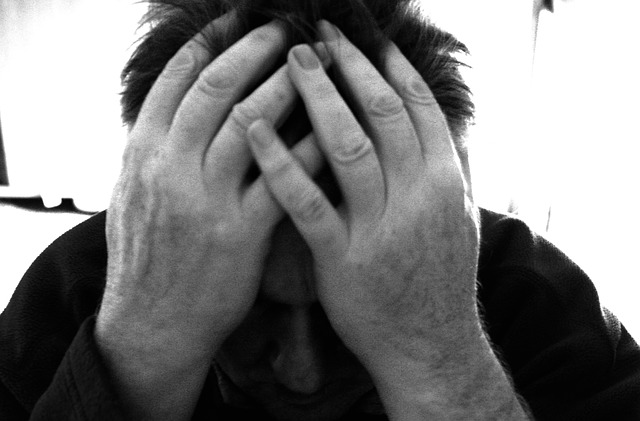
Unless you’ve been living under a rock lately, you know by now that famed actor and comedian Robin Williams passed away on Monday. He died of suicide, and had apparently been suffering from a severe depression for some time, as so very many people are. But this particular death has been sending shock waves around the world, spawning a spike in media interest surrounding the topics of depression and suicide, and causing many to wonder how such things could possibly have taken down the ultimate funny man; Robin Williams was a great comedian, for heaven’s sake! How does someone whose life work is based on making people laugh get to the point where he is ready to take his own life? It seems unfathomable to so many.
But the truth is, depression does not discriminate; it is one of those equal opportunity evils and it affects people of every culture, every age group, every occupation and every socio-economic status. Robin Williams was a well-loved celebrity whose work touched the lives of so very many, so his death has been generating buzz all over the Internet. But eventually all that buzz and the sudden upsurge in interest in depression and suicide and other mental health issues will settle down and we’ll all go back to keeping up with the Kardashians, or whoever the hell else the latest “it” people happen to be, until the next celebrity dies.
Cynical much? Maybe. But true nonetheless. Which is unfortunate because maybe if such tragedies created less of a media circus and more of an open dialogue about how we can help people, then maybe fewer of those people (celebrities included) would find themselves alone in that terrible mind-space where they can see no other option for ending their pain than dying.
Depression and Suicide Statistics
The thing is, mental health issues, in particular depression and suicide, are a growing concern all around the world. Some of the increase in the numbers we’re seeing is certainly the result of greater awareness and increased diagnosis, but on the whole, most experts seem to agree that we are seeing a genuine increase in these problems. The numbers are alarming:
- At any given time 20% of the population – that’s 1 in 5 people – are personally experiencing some form of mental illness. *
- Almost half of those individuals are suffering, at this very moment, from clinical depression. **
- More than 90 percent of suicide victims have a diagnosable psychiatric illness. *
- In the last 45 years, global suicide rates have increased 60%. ***
- Suicide is now the third leading causes of death, worldwide, for people between the ages of 15 and 44. ***
- Suicide is the second leading cause of death for children and young people between the ages of 10-24. ***
- Suicide has become so prevalent that every 40 seconds someone, somewhere in the world dies from it. ***
- 75% of those suffering from a treatable mental illness will never seek the help they need because of the very real fear of stigma. *
Depression and suicide are not trendy social media memes; they are silent killers, and they are ending the lives of real human beings all around the world. People like you and me with families and loved ones who are left to deal with the aftermath of their loss.
What depression is really like
Depression is one of those things that is really hard to explain to someone who has never experienced it. Some describe it at as a black cloud that hovers over your entire life. Some describe it as drowning. For me, it was like a grey void… like being trapped all alone in a fog that was so thick you couldn’t see anything and knowing that the ground beneath you was treacherous and filled with sudden, bottomless drops.
When you are in the depths of it, there is a nothingness; the void is all-consuming and you feel empty of all emotion. You feel nothing. There are no emotions left at all; just an overwhelming numbness, and the exhaustion. The exhaustion is total. I remember being in a doctor’s office trying to explain what was going on and the woman kept telling me to speak louder because she couldn’t hear me, but I couldn’t. It was taking every ounce of energy I had just to speak at all.
Understanding depression and suicide
It’s not at this void stage that suicide is a big risk; you don’t want to die at this stage because you just don’t have the ability to want anything at all. Desire, even for death, is an emotion. And you have none.
It’s when you just start to come out of that part of things… the fog you’re in starts to lift, just the tiniest bit, and you’ve got just enough energy to start feeling again, and what rushes in is the pain, and the despair and the hopelessness. And yet you’re able to mask your feelings from other people and you’re able to function, and sometimes you’re even able to laugh. But that darkness is always there with you, just below the surface. There’s no escape from it, and when you are alone – or worse, when you are stuck in a crowd of people, feeling utterly alone – that’s when it hits you hardest and all you want is for someone to understand. But no one does.
They tell you to “cheer up”. They tell you to “snap out of it”. They tell you that “it’ll all come out in the wash”. They tell you that you have a great a life and you have nothing to be depressed about. And all any of this does is make things worse, because now you feel guilty for not being stronger, on top of everything else.
And so you try to bury it deeper and you put your mask on and pretend that you’re normal. You go through the motions and nobody knows what’s really going on, but inside you’re dying a little more every day. Until one day, it’s too much. And the only escape that you can see is death. Because then it will finally, finally be over and you won’t have to deal with it anymore; you won’t have to fight it anymore. You tell yourself that the people you care about will be fine and that they really will be better off without you, and you do, in fact, believe that completely. There’s almost a relief in the decision to end it. It will finally be over…
Finding help, finding hope
I was thirteen years old the first time I can remember wanting to die. And I would again find myself in that place twice more over the next ten years. I was lucky, though – each time, I would get frightened enough to stop before any fatal outcome. In both of those other times, there was someone who was there for me and who talked to me until I was out of immediate danger. I’m not sure either of those people had any idea what was going on – they just knew that I was very upset and they talked to me. That’s all they did, and that’s all it takes sometimes to rekindle that tiny spark of hope; that’s all it takes sometimes to save a life.
Last year, in the early days of this blog, I got an email from someone who told me something I had said to her was the reason she had gotten help when she herself had wanted to die. Since then, I have sometimes had people come up to me after I’ve spoken somewhere, and I have also received occasional emails and direct messages from people who have read my blog or listened to my podcast, all reaching out to tell me that my words have made a difference in their lives. And for that, I am so grateful. Because it reminds me that if my life had ended years ago when I was in the dark place, then I would not now be here to make a difference in the lives of others.
Every single life is important. No matter how dark it seems, your life matters – YOU matter. And you have no idea what kind of an impact you are already making in the world, just by being here and just by being you.
If you are struggling and need help, a list of international distress centres and suicide prevention hotlines can be found at: http://www.suicide.org/international-suicide-hotlines.html
Please, please… if you are in the dark place, find whatever strength remains within you and make the call.
Sources:
* Canadian Mental Health Association
** Mental Health Commission of Canada
*** World Health Organization
photo credit: pixabay.com cc








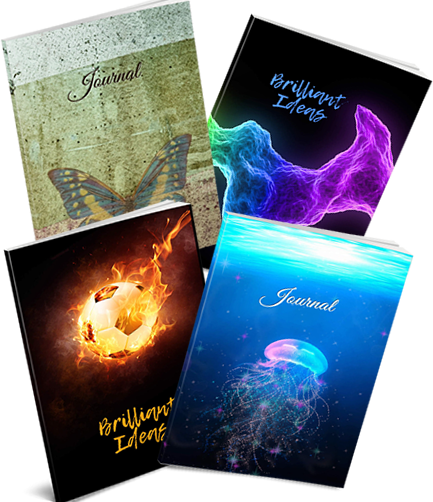
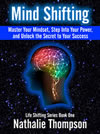
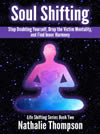
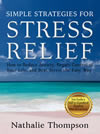
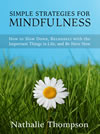




Hey Nathalie,
Wow, very nice post on this subject. And I just reminded myself this morning that I decided to be happy on this journey. Might as well be.
I know with depression it is like a wave going over you and you are caught up in it, not being able to function, low on energy, trapped in a web of thoughts. The thing is, with LOA, your Inner Being disagrees with all these thoughts and stuff. It really does. It is like your brain takes over with the bad stuff and well, you know. LOA and universal principles help maintain this state and increase understanding of our natural state, at least for me. And, like you mention in your kindle book, it is a matter of not reacting to every single thing, but to keep calm about it, or something along those lines. i just started reading it.
My question is, if we are creators, we can create because we want to, according to universal law, and we can have what we want, so there is no reason to even ask “if”, “and”, “but”, etc. Then why do we even let these things affect our mental and emotional powers and ruin the creative process? I know it is outside forces, but what the heck do they know? Most, as we stated before, haven’t even gone after their dreams. But I wonder what is it inside that causes us to doubt, question, back out of stuff that we really should go after and our heart is like, yes, do it, but we are like, no, can’t do it because … fill in the blank. These really are limiting factors and I wonder about this power they have over us. It is external not internal, as out IB knows better, yet we are overtaken and we need to be trained out of it again, back to normal, so to speak. Any insight on this matter will be most helpful.
Love your blogs!!!
That part of the stress book talks about shifting how you look at the situations you’re in… stress is caused not by the situation itself, but by our reaction to and interpretation of the situation. It’s what we think about the situation, rather than the situation itself that causes the problem. And yes, this same principle does extend to other areas of mental health. But gaining that insight and being able to work with it is beyond the capabilities of anyone who is caught in the middle of a full-blow depression… it’s just not possible when you’re trapped in that, and there are changes to the chemistry of the brain itself that affect things, too. I’ll be going more in depth about all of this in next Wednesday’s post.
We are affected by the “if”s and “but”s because we are human. Experiences of fear and pain teach us wariness fairly early on in life, and a lot of that isn’t even picked up consciously. Your emotions are affected by your thoughts, and if you aren’t even aware of the thoughts you have running through your head on auto-pilot, then you just cannot have much insight into what it’s doing to you. Reasons I like meditation — it helps you to become aware of the fact that you are more than your thoughts, that there is a greater awareness or observer within you that is bigger than those thoughts. And it helps you to realize just how many thoughts there are, all the time, and what those thoughts actually are. Self-awareness. Understanding. And with it comes the power and ability to consciously control your response to events around you, so that the events themselves no longer have the power to control you.
I saw a case of a child with schizophrenia today. I was looking for the post on mental illness. I hope this is the one.
Abe Hicks say that schizophrenia is a result of the majority of focus is negative. So negative focus brings it on in an adult, which I have seen happen. but how can we explain this in a child born with it? I felt so bad for the child. She practically does not sleep- only 23 min naps several times a day and she has pink circles around her eyes. Otherwise, she is very cute and intelligent- just not in this “reality”. How can a child be negatively focused? Was that a soul contract she made before coming into physical? I know the burden is not on her but all on her parents, who need to live in separate apartments for fear that she will attack her baby brother (who is not schizophrenic). I am just wondering about something like this. I know LOA-wise there is a reason behind it.
I’m not an expert on schizophrenia by any means, but if I recall correctly, it’s fairly rare in children. It doesn’t usually kick in until a person is in their twenties, and it affects more men than women. From a medical perspective, they still don’t know what causes it.
From an energy perspective, she may be considerably more sensitive to shifts in the energy field than is normal for our existence here. In that case, it might become overwhelming — she may be swamped with a kind of sensory overload that she is unable to interpret or cope with. Beyond that, I don’t really know enough about the disease to comment on the specific vibrational triggers.
But I will say this: I don’t believe in soul contracts in the form of an unbreakable agreement made in the beyond which binds you to a particular kind of life experience here; our futures are always fluid and never set in stone, and they depend on the choices we make and the energy we work with. What would the point be if we weren’t able to control our destinies? Where would the learning and growth come from if we couldn’t make choices based on the life we currently happen to be living?
We all come here with plans and intentions, and some of those plans are made with other souls (though none of those plans are ever set in stone — again, they can’t be, given the way we are able to create our experiences here). So, yes, it is possible that the experience this child is currently having is something that she decided on before she came here, and something that those around her agreed to as well. This does not mean that we should ignore or not help people who are having these experiences because “they chose it”, and it is not an excuse for callous disregard for human suffering of any kind; always keep in mind that, just as you aren’t consciously aware of particular “plans” that you made before you got here, neither is anyone else. And suffering of any sort is never fun for anyone. Besides which, what if part of the plan was that her particular experience would be a catalyst for people to start helping and working on a cure?